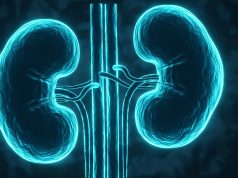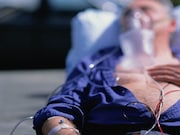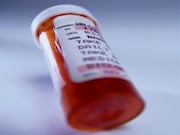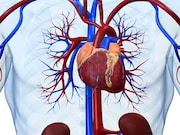Type 2 Diabetes Associated With Poorer Outcomes in Heart Failure
Findings include structural abnormalities in the heart, poorer quality of life with T2DM and HF
Intensifying BP Meds at Hospital Discharge May Harm Elderly
Risk for readmissions and adverse effects higher, no long-term benefit for BP control or cardiac risk
Rx Size Predicts Persistent Opioid Use After Cardiothoracic Surgery
Patients prescribed more than 450 oral morphine equivalents have more new persistent opioid use
More Physical Activity at Any Intensity May Reduce Mortality
Higher levels of total physical activity, less time spent sedentary linked to lower mortality risk
Taking Buprenorphine for Opioid Use Disorder May Up Other Med Compliance
Findings seen among those taking buprenorphine and any of five other drug classes
High, Increasing BP in Midlife Tied to Brain Changes in Late Life
Higher DBP at age 43 years, greater increases from 36 to 43 linked to smaller whole-brain volume at 69 to 71
Short-Term Exposure to PM10 and PM2.5 Affects Mortality
Risk for daily all-cause, cardiovascular, respiratory mortality up with short-term exposure
Serelaxin Does Not Lower CV Death in Acute Heart Failure
No drop in incidence of death at 180 days or worsening of heart failure seen for hospitalized patients
Quitting Smoking Linked to Lower CVD Risk Within Five Years
However, compared with never smokers, former smokers' risk remains elevated beyond five years
MRI Shows Vaping Has Transient Impact on Vascular Function
In healthy nonsmokers, inhaling nicotine-free e-cigarette aerosol impacts endothelial function



















